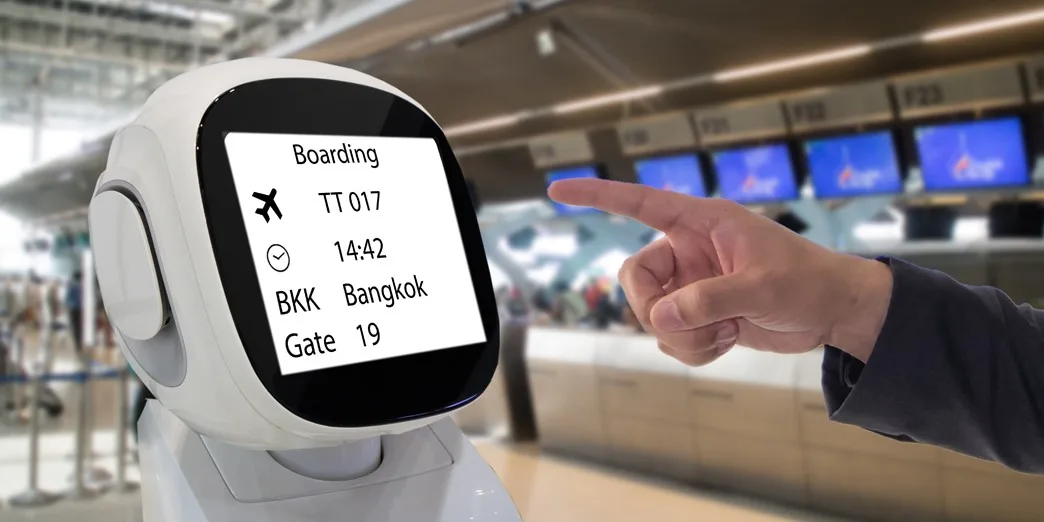Three major technology trends in the global airline industry

Technology is disrupting most industries today, and the airline industry is no exception. Some of the major airlines today are leveraging disruptive technologies such as big data analytics, robotics, augmented reality, and social media to gain a competitive edge in today’s fragmented and highly competitive business environment. These technologies enable dominant full-service carriers (FSCs) to differentiate from low-cost carriers (LCCs) and ultra-low-cost carriers (ULCCs). As the competitive landscape in the commercial airline industry continues to evolve, LCCs and ULCCs are increasingly gaining market share from FSCs, effectively blurring the lines between the two business models. As a result, there’s a growing focus on enhancing customer delight by leveraging technology to strengthen and maintain market positions.
Here’s a look at some of the top technology trends in the airline industry.
Big data analytics in trip engineering and personalized travel services
Players in the airline industry realize that generating revenue just by selling flight tickets is not a sustainable business model. Leading airlines are, therefore, tapping into new avenues for generating revenue through trip engineering and personalized travel services. These services allow airlines to earn ancillary revenue from lodging, car rentals, entertainment, personalized itineraries, and so on. Airlines are investing huge capital to create extensive digital marketing capabilities and utilize big-data analytics to improve revenue growth in these areas. There’s also increasing focus on providing seamless omnichannel experiences through mobile apps, e-Commerce, and automated business processes such as web check-ins.
Robotics and cognitive computing for better operational efficiency
Tokyo Haneda Airport and Auckland Airports use robots for luggage transportation and cleaning. Etihad and Lufthansa tied up with IBM to take advantage of IBM Watson. Both airlines plan to leverage IBM’s cloud-based technologies to enhance the guest experience, develop world-class infrastructure and security, and improve operational efficiency.
Soon, we can expect international airlines to be automated with artificial intelligence and robotics to improve operational and passenger experience, passports being replaced by e-passports and biometric boarding passes enabling seamless and secure air travel process.
Creative social media campaigns for engagement
Leading global airlines are investing in innovative social media campaigns to engage with customers in order to improve brand loyalty and recall. Some of the recent examples of social media being leveraged by airline companies include Virgin Atlantic’s (VA) ‘Looking for Linda’, and British Airways’ Facebook application called ‘Perfect Days’.
As the development of newer technologies gains momentum, it is important for businesses to analyze their impact on them and adapt in order to stay relevant. Get in touch with us to know how undertaking innovation and patent research can help you stay ahead of the curve.






